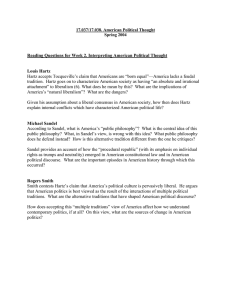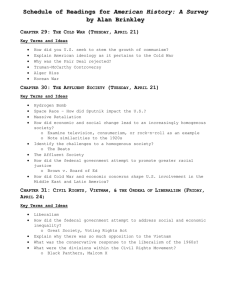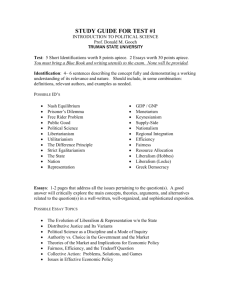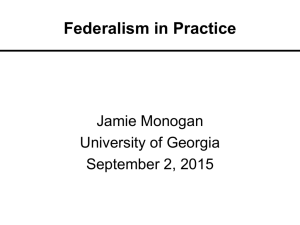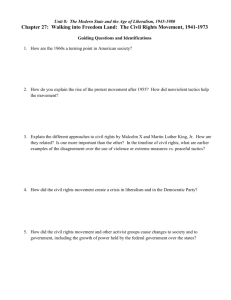17.037/17.038 American Political Thought Spring 2004 2/10/04 Student Lecture Notes
advertisement
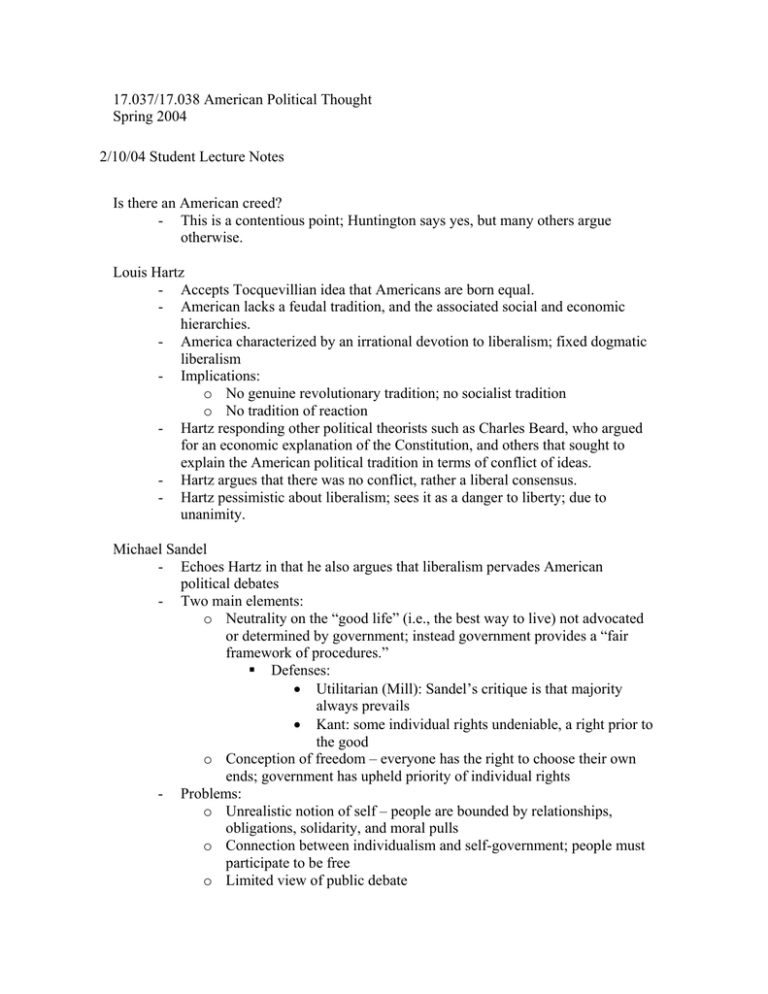
17.037/17.038 American Political Thought Spring 2004 2/10/04 Student Lecture Notes Is there an American creed? - This is a contentious point; Huntington says yes, but many others argue otherwise. Louis Hartz - Accepts Tocquevillian idea that Americans are born equal. - American lacks a feudal tradition, and the associated social and economic hierarchies. - America characterized by an irrational devotion to liberalism; fixed dogmatic liberalism - Implications: o No genuine revolutionary tradition; no socialist tradition o No tradition of reaction - Hartz responding other political theorists such as Charles Beard, who argued for an economic explanation of the Constitution, and others that sought to explain the American political tradition in terms of conflict of ideas. - Hartz argues that there was no conflict, rather a liberal consensus. - Hartz pessimistic about liberalism; sees it as a danger to liberty; due to unanimity. Michael Sandel - Echoes Hartz in that he also argues that liberalism pervades American political debates - Two main elements: o Neutrality on the “good life” (i.e., the best way to live) not advocated or determined by government; instead government provides a “fair framework of procedures.” Defenses: • Utilitarian (Mill): Sandel’s critique is that majority always prevails • Kant: some individual rights undeniable, a right prior to the good o Conception of freedom – everyone has the right to choose their own ends; government has upheld priority of individual rights - Problems: o Unrealistic notion of self – people are bounded by relationships, obligations, solidarity, and moral pulls o Connection between individualism and self-government; people must participate to be free o Limited view of public debate - Emergence of procedural republic – march of the priority of the right over the good; neglects fostering of common civic identity. Solution: republican conception of freedom – all individuals must participate in government; government cannot be neutral. Rogers Smith - Argues against centrality of liberalism. - Instead, Smith argues that American political thought better characterized by the interaction of multiple traditions. - Implications: o Not all Americans accepted ideas of liberalism, republicanism. o Typical for Americans to accept contradictions in institutions; these are not aberrations. o Common of Americans to accept new ideologies to justify hierarchies (social, racial). o American political development cannot be seen as rising tide of liberalism; more of a serpentine pattern. - Smith tests his propositions using history of citizenship laws. 2
